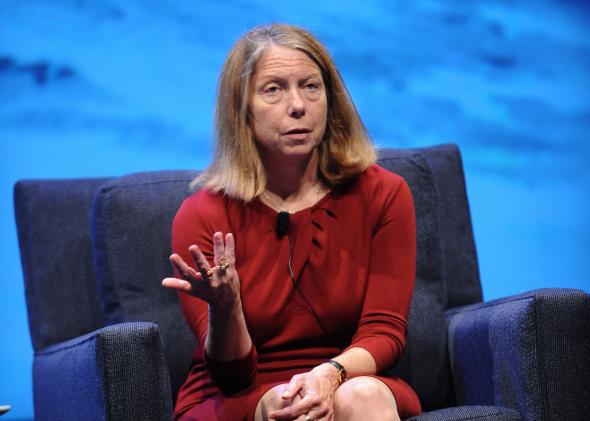New York Times publisher Arthur Sulzberger Jr. spoke up on Saturday, vehemently rejecting the “shallow and factually incorrect storyline [that] has emerged” about the ouster of the newspaper’s executive editor, Jill Abramson, earlier this week. In a statement, Sulzberger says that what is “perhaps the saddest outcome” of the firing is that many have been using it “as an example of the unequal treatment of women in the workplace.” In reality though, Abramson was just a bad manager who mistreated colleagues, had poor communications skills, and made bad decisions.
“During her tenure, I heard repeatedly from her newsroom colleagues, women and men, about a series of issues, including arbitrary decision-making, a failure to consult and bring colleagues with her, inadequate communication and the pubic mistreatment of colleagues,” wrote Sulzberger. “She acknowledged that there were issues and agreed to try to overcome them … It became clear, however, that the gap was too big to bridge and ultimately I concluded that she had lost the support of her masthead colleagues and could not win it back.” Lots of women work at the Times and “they do not look for special treatment” but rather “want to be judged fairly and objectively on their performance. That is what happened in the case of Jill.”
Sulzberger once again denied claims that Abramson was earning less than her predecessor, saying her compensation package “was more than 10 percent higher” in her last year as executive editor. “Equal pay for women is an important issue in our country,” Sulzberger wrote. “But it doesn’t help to advance the goal of pay equality to cite the case of a female executive whose compensation was not in fact unequal.” (Of course, if what The New Yorker’s Ken Auletta has been reporting is true, her pay during her last year on the job was only part of the story considering she had reportedly discovered a pattern of lower paychecks than her male colleagues dating back more than a decade.)
Meanwhile, Abramson’s daughter, 31-year-old Cornelia Griggs, whom the New York Times’ Ravi Somaiya describes as “among the most visible” Abramson supporters since the ouster, wrote on Instagram on Friday that “the story isn’t over, not even close.”
